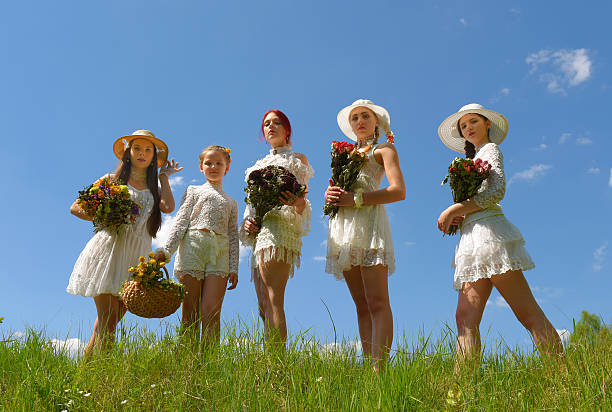In Nigeria, the tradition of coordinating outfits, known colloquially as “asoebi,” has long been an integral part of social events. From weddings to birthdays, graduations to funerals, the practice of wearing matching fabrics or outfits to these gatherings is deeply ingrained in the cultural fabric of the nation. Asoebi isn’t just about dressing up; it’s a symbol of unity, solidarity, and shared identity within communities. However, beneath its surface charm lies a downside that often goes unnoticed – the financial strain it places on individuals and families.
At first glance, the concept of Asoebi appears delightful. It fosters a sense of camaraderie and belonging as participants don outfits that showcase their affiliation with the celebrant or event. The chosen fabric or attire typically features vibrant colors, intricate designs, and exquisite craftsmanship, reflecting the celebratory nature of the occasion. Moreover, wearing asoebi serves as a visual demonstration of support and respect for the host, affirming the importance of communal bonds in Nigerian society.
Yet, as appealing as this tradition may seem, its pitfalls become apparent upon closer examination. The pressure to participate in asoebi can create financial burdens for individuals, particularly those with limited resources. The costs associated with purchasing the designated fabric or outfit, along with additional expenses such as tailoring and accessories, can quickly escalate, placing strain on already tight budgets. For some, the desire to conform to societal expectations and avoid social stigma outweighs their financial capabilities, leading to financial strain or even debt.
Furthermore, the expectation of wearing asoebi at multiple events throughout the year can become financially unsustainable, especially for those who belong to large social circles or extended families. With each new invitation comes the obligation to purchase yet another set of matching attire, further exacerbating the financial strain on participants. This perpetual cycle of spending can create a vicious cycle of debt and economic insecurity as individuals struggle to keep up with the ever-increasing demands of social etiquette.
Moreover, the emphasis on materialism and outward appearances inherent in the Asoebi culture can overshadow the true essence of social gatherings. Instead of focusing on the joyous moments and meaningful connections that these events are intended to foster, participants may find themselves preoccupied with superficial concerns about their attire and status. This preoccupation with external validation can detract from the authentic experience of celebration and camaraderie, turning meaningful occasions into mere showcases of material wealth and social standing.
Additionally, the pressure to conform to Asoebi’s expectations can create feelings of exclusion and alienation for those who are unable or unwilling to participate. Individuals who choose not to purchase the designated fabric or outfit may face judgment or ostracism from their peers, leading to feelings of inadequacy or isolation. This cultural phenomenon reinforces existing social hierarchies based on wealth and status, perpetuating inequality and division within communities.
Despite its drawbacks, asoebi remains deeply entrenched in Nigerian culture, with its roots extending far back into history. Its significance transcends mere fashion, serving as a symbol of unity, identity, and cultural heritage. However, in order to ensure that this tradition remains sustainable and inclusive, it is essential to address the financial implications and societal pressures associated with it.
One possible solution is to promote greater flexibility and diversity in asoebi practices, allowing individuals to participate in ways that are meaningful to them without imposing undue financial burdens. This could involve offering more affordable options for fabric or attire, encouraging DIY customization, or even adopting alternative forms of expression, such as themed accessories or colors. By fostering a culture of creativity and inclusivity, we can preserve the spirit of Asoebi while alleviating some of its negative consequences.
Furthermore, promoting open dialogue and education around financial literacy and budgeting can empower individuals to make informed choices about their participation in Asoebi and other social customs. By equipping people with the necessary tools and resources to manage their finances responsibly, we can help mitigate the financial strain associated with asoebi and promote greater financial well-being within communities.
While Nigeria’s tradition of matching outfits at events carries with it a sense of unity and cultural pride, it also harbors a hidden downside in the form of financial strain and social pressure. By acknowledging these challenges and working towards more inclusive and sustainable practices, we can ensure that Asoebi continues to enrich Nigerian social life while safeguarding the financial security and dignity of all its participants.
